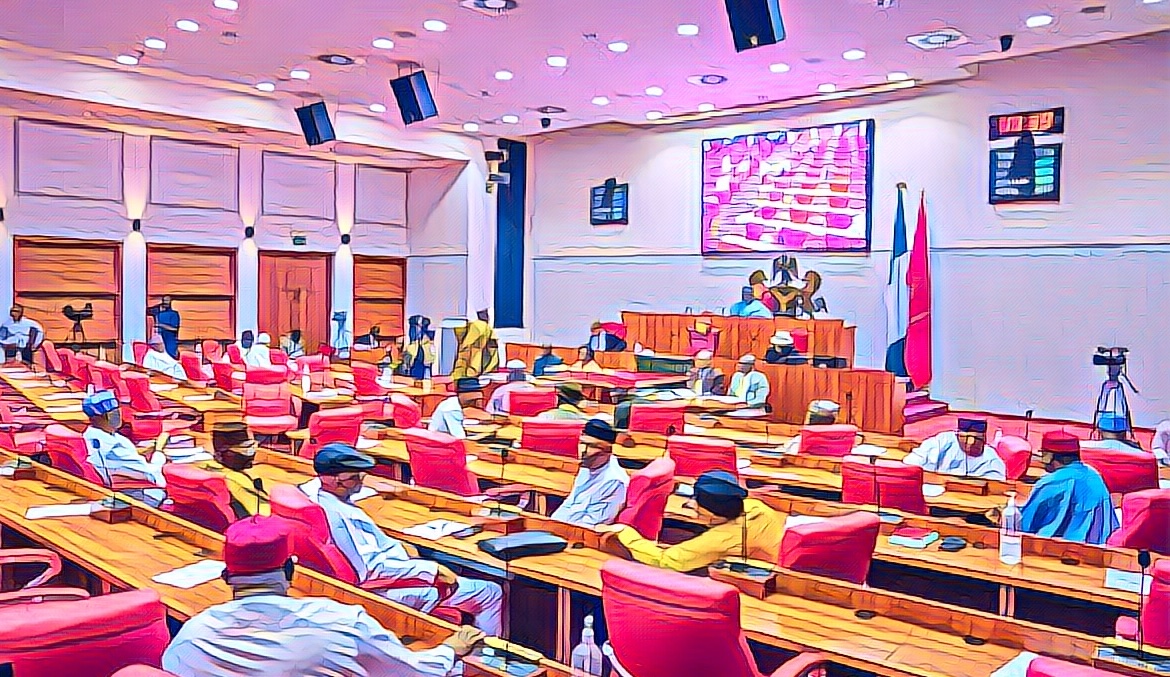Nigerian lawmakers in the Senate took a significant step towards boosting judicial pay on Thursday by advancing a bill that proposes raising salaries and allowances for judges at all levels across the country. The legislation, titled “The Judiciary Salaries and Allowances Bill,” passed its second reading during a Senate session.
Senator Lola Ashiru (Kwara South Senatorial District), the Deputy Majority Leader, spearheaded the bill’s introduction. Ashiru argued that approving the legislation would bolster the integrity of the judicial branch. She emphasized the importance of a well-compensated judiciary, stating it would foster public trust in the justice system.
Supporters of the bill believe better pay for judges would improve their working conditions and deter corruption. Senator Tahir Monguno (APC, Borno North) addressed concerns about judicial vulnerability to corruption, saying, “There’s a pressing need to increase judges’ remuneration. This will make them less susceptible to bribery and empower them to deliver fair and just verdicts.”
Senator Orji Kalu (APC, Abia North) echoed similar sentiments, highlighting the ethical implications of inadequate judicial pay. “It’s the morally right thing to do,” Kalu remarked. “We need to ensure the judiciary is financially secure. While this bill is a positive step, we must also consider raising salaries in other sectors of the economy.”
Lawmakers like Senator Emmanuel Udende (APC, Benue North-East) shed light on the current challenges faced by judges due to low salaries. “For over 15 years, judges have been grappling with meager wages,” Udende said. “This significantly dampens their morale and hinders their ability to perform their duties effectively.” Udende’s statement underscores the potential impact of low judicial salaries on the efficiency of the justice system.
Mixed Reactions and The Road Ahead
The bill’s passage through the second reading signifies a critical step forward. However, it still requires further deliberation in the Senate committee stage. During this stage, lawmakers will meticulously examine the bill’s provisions and potentially propose amendments. Afterward, the bill will face a third and final reading before being sent to the House of Representatives for consideration.
The proposal to increase judges’ salaries has sparked mixed reactions among Nigerians. Proponents argue that better pay is necessary to attract and retain qualified judges, ultimately strengthening the justice system. They believe that a well-compensated judiciary would attract talented legal minds and incentivize them to pursue judicial careers. This, in turn, would lead to a more competent and efficient justice system.
Opponents express concerns about the overall cost to taxpayers and whether the raise will effectively address judicial corruption. Some argue that focusing solely on salary increases might not be enough to eliminate corruption within the judiciary. They propose implementing stricter anti-corruption measures alongside any salary increase.
The National Assembly will continue discussions on the Judiciary Salaries and Allowances Bill in the coming weeks. The outcome of the legislation will be closely watched, as it has the potential to significantly impact Nigeria’s judicial system. If passed, the bill could lead to a better-compensated judiciary, potentially attracting high-caliber judges and bolstering public trust in the justice system. However, concerns regarding the financial burden and the effectiveness of salary increases in combating corruption remain to be addressed.
Source: Punch


